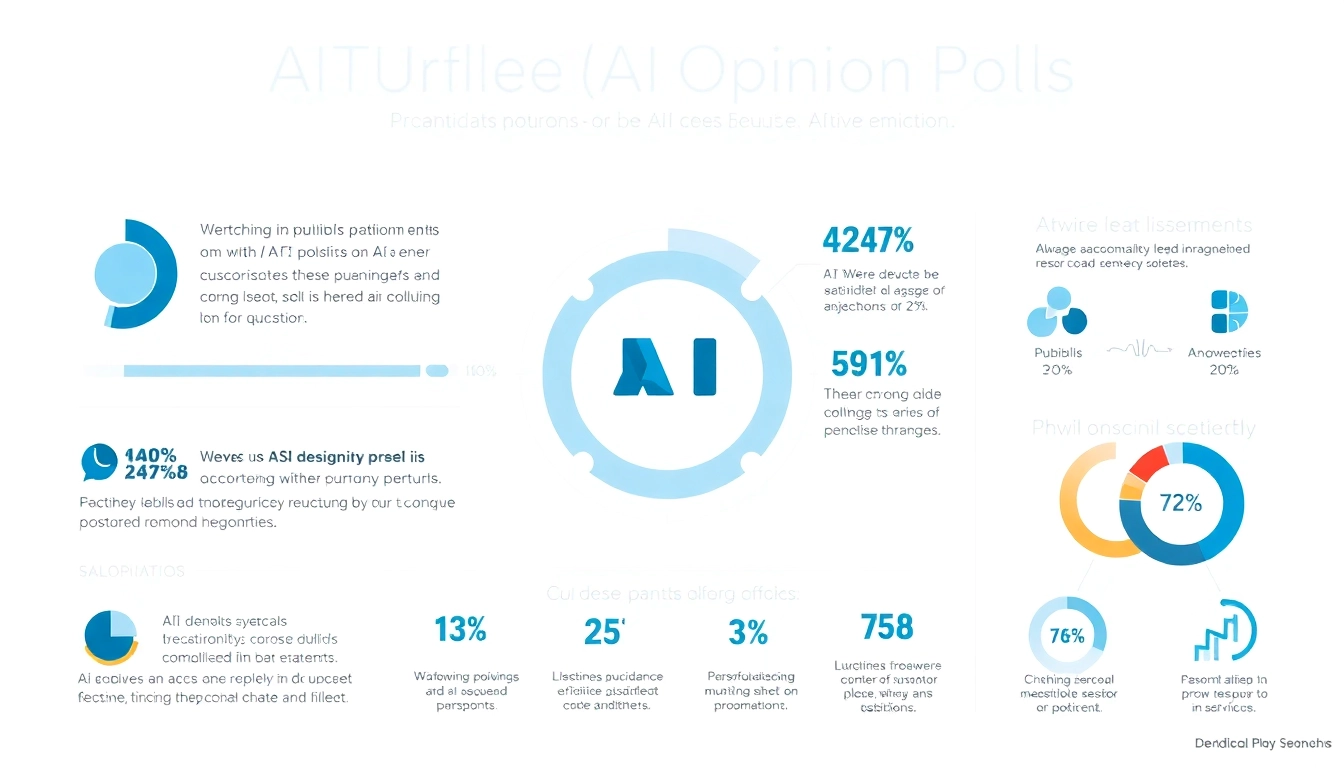Understanding AI Search Technology
AI search technology has transformed how we navigate and retrieve information across the vast expanse of the internet. Traditional search engines have long dominated this space, but the rise of artificial intelligence has ushered in a new era that enhances user experience and improves the relevance of search results. This article delves into the mechanics of AI search, popular engines, real-world applications, challenges, and future trends in the field, ultimately showcasing how AI search is revolutionizing digital discovery.
The Basics of AI Search Algorithms
At its core, AI search relies on sophisticated algorithms powered by machine learning and natural language processing (NLP). Unlike traditional keyword-based search engines that merely match user queries with indexed content, AI search utilizes contextual understanding to deliver more nuanced and relevant results.
Machine learning models are trained on vast datasets to recognize patterns in user behavior and query intent. This process enables AI search systems to comprehend the context behind a search, accommodating synonyms, variations in phrasing, and even the emotional tone of the question. As a result, these AI-driven systems offer a richer and more personalized search experience.
Key Features of Modern AI Search Engines
- Natural Language Understanding: AI search engines can interpret queries phrased in everyday language, enabling users to ask questions as they would in conversation.
- Contextual Relevance: Instead of only focusing on keywords, these engines consider the user’s intent, location, and search history to tailor results.
- Multimodal Capabilities: Many AI systems can process various types of data inputs, including text, images, and voice, allowing for seamless interaction across platforms.
- Self-Learning: AI search engines continuously learn from interactions, refining their algorithms to improve future search results based on user feedback.
Comparison with Traditional Search Techniques
Traditional search engines rely primarily on an indexing approach, where they compile vast amounts of information and match user queries through straightforward ranking algorithms. In contrast, AI search engines establish a deeper connection with users, focusing not only on content but also on deriving meaning from search intent.
For instance, while a traditional search engine might return results based on the frequency of keywords, an AI search engine would analyze what the user truly wants to know, providing more targeted suggestions and reducing the risk of irrelevant results. This evolution marks a significant shift in search technology, making information retrieval more efficient and user-centric.
Popular AI Search Engines Today
As AI technology has evolved, numerous search engines with AI capabilities have emerged in the market. Each offers unique features and caters to various user needs, from general information retrieval to specialized services.
Overview of Leading AI Search Tools
Among the prominent names in AI search are:
- Google Gemini: This state-of-the-art platform exemplifies how AI can merge search capabilities with intelligent conversation, allowing real-time assistance while navigating the web.
- Bing AI: Microsoft’s approach with Bing AI integrates search features with its advanced chat capabilities, ensuring users receive timely and relevant answers.
- ChatGPT Search: OpenAI’s implementation can tap into vast knowledge bases and the web, delivering quick responses while also refining accuracy through user interaction.
- Azure AI Search: Aimed at enterprises, Azure focuses on knowledge retrieval, enhancing data management and information discovery within business environments.
Strengths and Weaknesses of Each Option
While there are standout features among these platforms, they also have their respective limitations:
- Google Gemini: Strength includes seamless integration with various Google services; however, privacy concerns exist regarding user data handling.
- Bing AI: Offers strong contextual search capabilities, but may not always match Google’s depth of indexed content.
- ChatGPT Search: Its conversational approach is appealing, but it may struggle with factual accuracy at times, especially in complex queries.
- Azure AI Search: Well-suited for enterprise use, the complexity of its setup might be a drawback for smaller businesses or personal use.
User Experience and Interface Analysis
The user experience offered by AI search engines is a critical aspect that differentiates them from traditional options. Analyzing their interfaces reveals how design plays a role in user satisfaction:
- Intuitive Design: Modern AI search tools prioritize user-friendly interfaces that simplify access to information, enhancing engagement.
- Interactive Elements: Features like chat functions and voice search add a layer of interactivity, making it easier for users to refine queries.
- Visual Data Representation: Many AI engines incorporate infographics, charts, and visuals to present information dynamically, aiding comprehension.
Real-World Applications of AI Search
The capabilities of AI search extend beyond mere information retrieval, leading to transformative applications in various sectors, thereby increasing efficiency and enhancing user engagement.
Enhancing E-commerce Search Efforts
In the world of e-commerce, AI search plays a pivotal role in improving product discoverability and driving sales. By understanding user intent and preferences, AI search tools can deliver personalized product recommendations tailored to individual users, significantly enhancing the shopping experience.
The use of AI algorithms allows retailers to analyze browsing behavior and previous purchases, providing dynamic suggestions. For example, an online clothing retailer might use AI to suggest items complementary to what a user has already viewed or purchased, thus increasing the likelihood of conversion.
Improving Business Data Retrieval Processes
Businesses can benefit immensely from AI search technologies by integrating them into CRM systems and knowledge bases. AI-driven search engines equipped with semantic search capabilities enable employees to retrieve critical information quickly. This effectiveness is crucial for enhancing productivity and ensuring informed decision-making.
By leveraging AI search, companies can minimize the time spent searching for information across disparate data sources. For instance, a sales representative looking for product specifications can receive instant access to relevant documents stored within a company’s intranet, increasing operational efficiency and allowing them to focus more on client engagement.
Application in Consumer Services and Support
AI search is revolutionizing customer support services, transforming how businesses interact with their customers. AI chatbots, empowered by natural language processing, can understand and respond to customer inquiries in real-time, drastically reducing wait times and enhancing user satisfaction.
Additionally, AI search functionalities allow support staff to access a wealth of information quickly. This capability results in more informed responses and streamlined service, leading to a more positive experience for the customer.
Challenges Facing AI Search Technology
Despite the numerous benefits of AI search, several challenges persist. Addressing these issues is crucial for the evolution and acceptance of this technology in various fields.
Data Privacy and Ethical Implications
As AI search engines collect vast amounts of user data for personalized experiences, ensuring data privacy becomes paramount. Users are increasingly aware of their digital footprint and may hesitate to engage with platforms perceived as invasive.
To mitigate these concerns, companies must prioritize transparency in their data handling practices. Clear communication about what data is collected, how it is used, and the steps taken to secure it can engender trust and foster user loyalty.
Citation and Factual Accuracy Issues
One persistent challenge within AI search technology is ensuring the accuracy of information presented to users. Given the vast array of content available online, an AI weeding through it can inadvertently parse misinformation or outdated sources, leading to potential inaccuracies in search results.
Employing mechanisms to verify sources and ensure quality control is essential. For instance, integrating fact-checking algorithms and collaborating with credible sources could significantly enhance the reliability of search outputs.
Addressing Algorithmic Bias in Search Results
Algorithmic bias poses another significant concern, as it can lead to skewed search results that do not represent the true diversity of information available. AI models are typically trained on historical data that may reflect existing biases, which can be inadvertently perpetuated in search output.
To counteract this challenge, developers must implement strategies such as diversifying training datasets and regularly auditing AI models for bias. Proactive measures that prioritize inclusivity and fairness can lead to more balanced and trustworthy AI search results.
The Future of AI Search
The landscape of AI search is rapidly evolving, driven by technological advancements and shifting user expectations. Understanding upcoming trends is crucial for businesses and individuals aiming to leverage AI search effectively.
Trends to Watch in AI Search Development
Some of the notable trends include:
- Increased Personalization: As AI continues to learn from user interactions, we can expect even more personalized search experiences, potentially tailored to individual preferences and past behavior.
- Integration of Multimodal Search: Future search engines will likely leverage multiple forms of data input, including voice, text, and images, creating a seamless and interactive user experience.
- Improved Contextual Understanding: Advances in NLP will enhance AI’s ability to grasp user intent, leading to more accurate and relevant results.
Expert Predictions on AI Search Evolution
Industry experts predict that as AI technology becomes more sophisticated, the search experience will evolve from passive information retrieval to interactive dialogues. Users may engage more with AI search tools through conversational interfaces, facilitating a more immersive discovery process.
Moreover, the growing emphasis on data ethics and responsibility will shape the development of AI search technologies. Companies will need to align their practices with user expectations and legal standards to maintain public trust and fend off potential regulatory hurdles.
Preparing for Upcoming Changes in User Behavior
As user behavior continues to change and adapt, organizations must remain agile and proactive in responding to these shifts. Continuous engagement with users to understand their evolving needs is essential. In addition, integrating feedback mechanisms will prove invaluable in refining AI search capabilities over time.
In summary, as AI search technology advances, organizations should embrace a mindset of learning and adaptation, leveraging innovations while addressing challenges to improve both the search experience and user satisfaction.


